When renovating a kitchen, choosing the right flooring is crucial to the room’s functionality and aesthetic appeal. At Archi-Builders, we understand the importance of this decision. We’re here to guide you through the pros and cons of different flooring materials, focusing on durability, maintenance, and style to help you make an informed choice.
Overview of Flooring Materials
The flooring you choose for your kitchen impacts not just the room’s look but also its practicality. We’ll explore various options, including hardwood, tile, laminate, vinyl, stone, and cork, each offering unique advantages and considerations.
Hardwood Flooring
Hardwood floors bring warmth and natural beauty to any kitchen, creating a space that feels both inviting and timeless. While hardwood is durable, it requires regular maintenance to prevent water damage and wear. Consider engineered hardwood for a moisture-resistant option that still offers the classic appeal of wood.
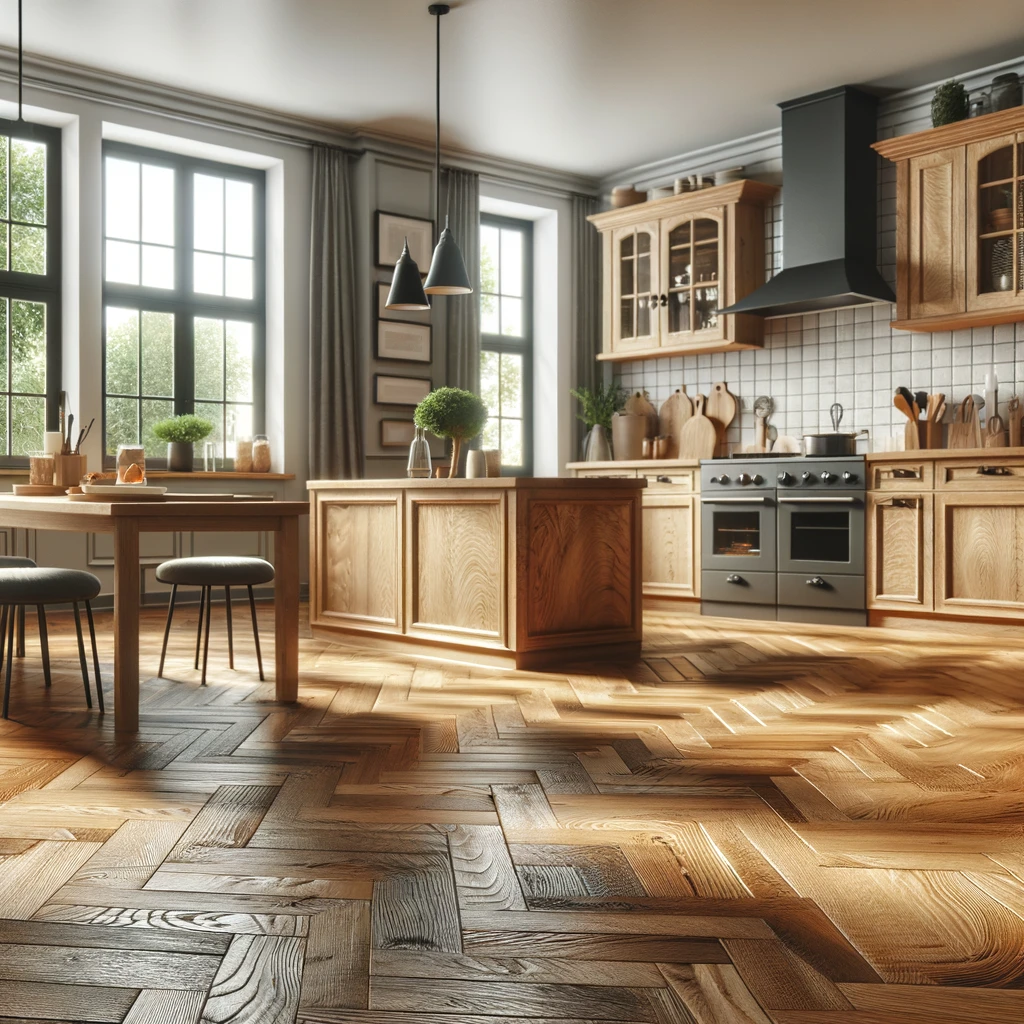
Tile Flooring
Tile offers unparalleled versatility and durability, making it a popular choice for high-traffic kitchen areas. Ceramic and porcelain tiles, in particular, are resistant to spills, stains, and scratches. With a wide range of designs, tile flooring can complement any kitchen style, from modern to traditional.
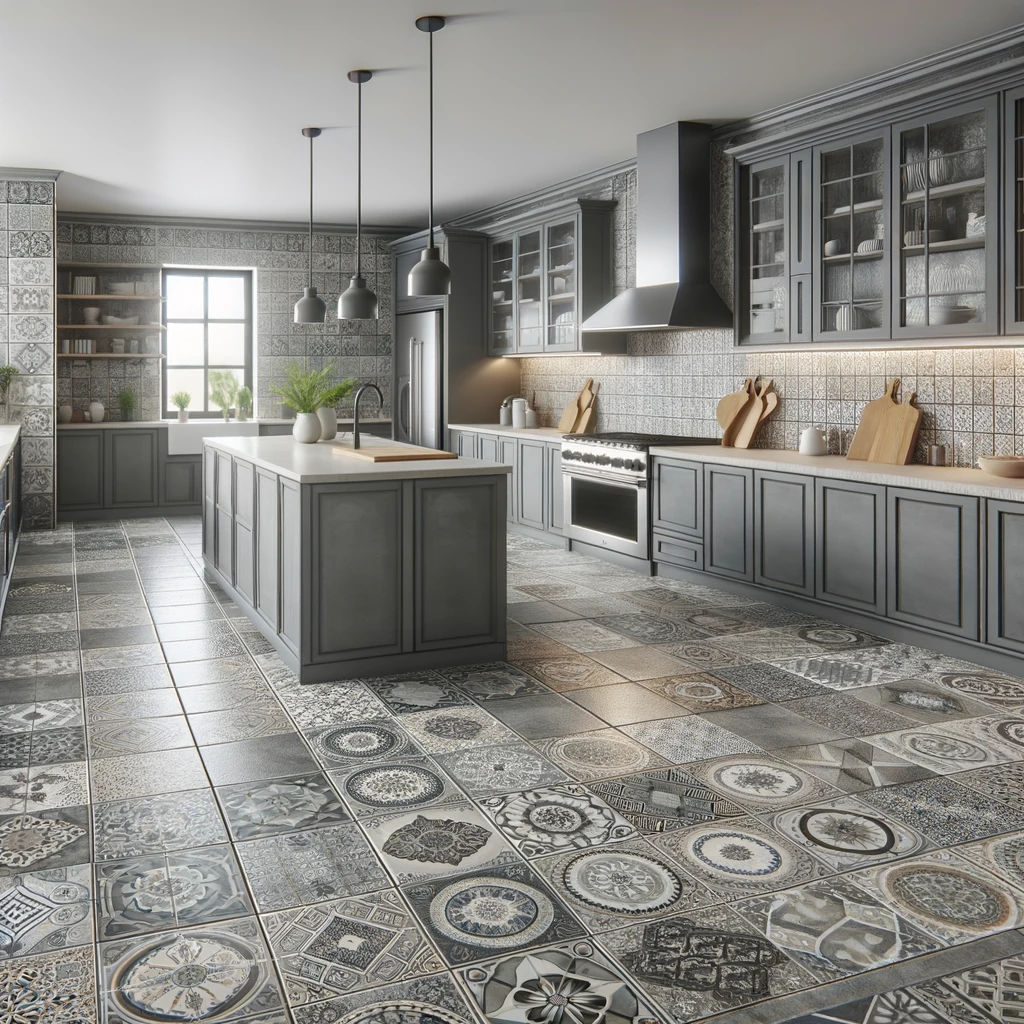
Laminate Flooring
For those seeking the hardwood look without the price tag, laminate flooring is an excellent alternative. Modern laminate can mimic various wood species and patterns, offering a durable surface that stands up well to kitchen spills and activity. However, it’s less resistant to moisture compared to other materials, so spills should be cleaned up promptly.
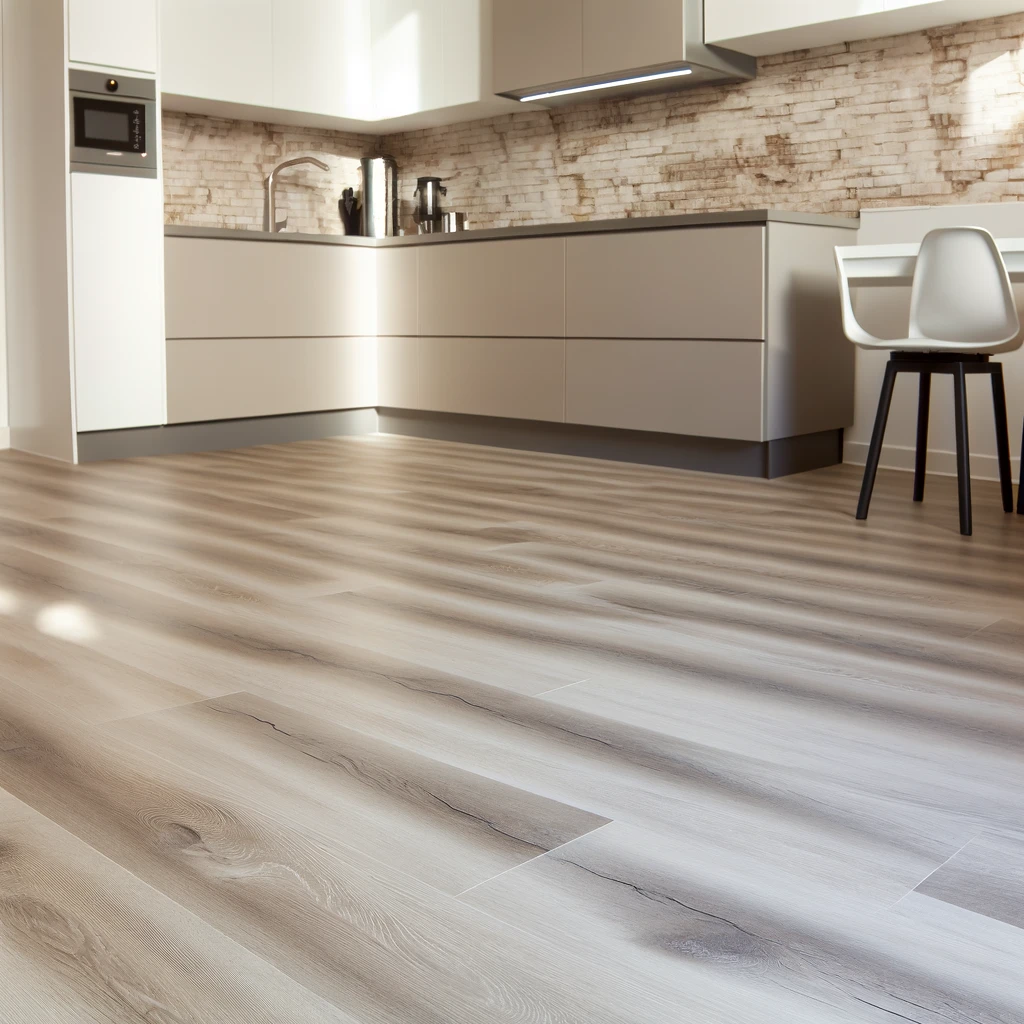
Vinyl Flooring
Vinyl flooring has evolved significantly, with luxury vinyl tiles (LVT) and planks (LVP) offering the texture and appearance of natural materials like wood and stone. It’s a highly durable, water-resistant option that’s easy to clean, making it ideal for kitchens. Vinyl also provides comfort underfoot and noise reduction, a bonus in busy households.
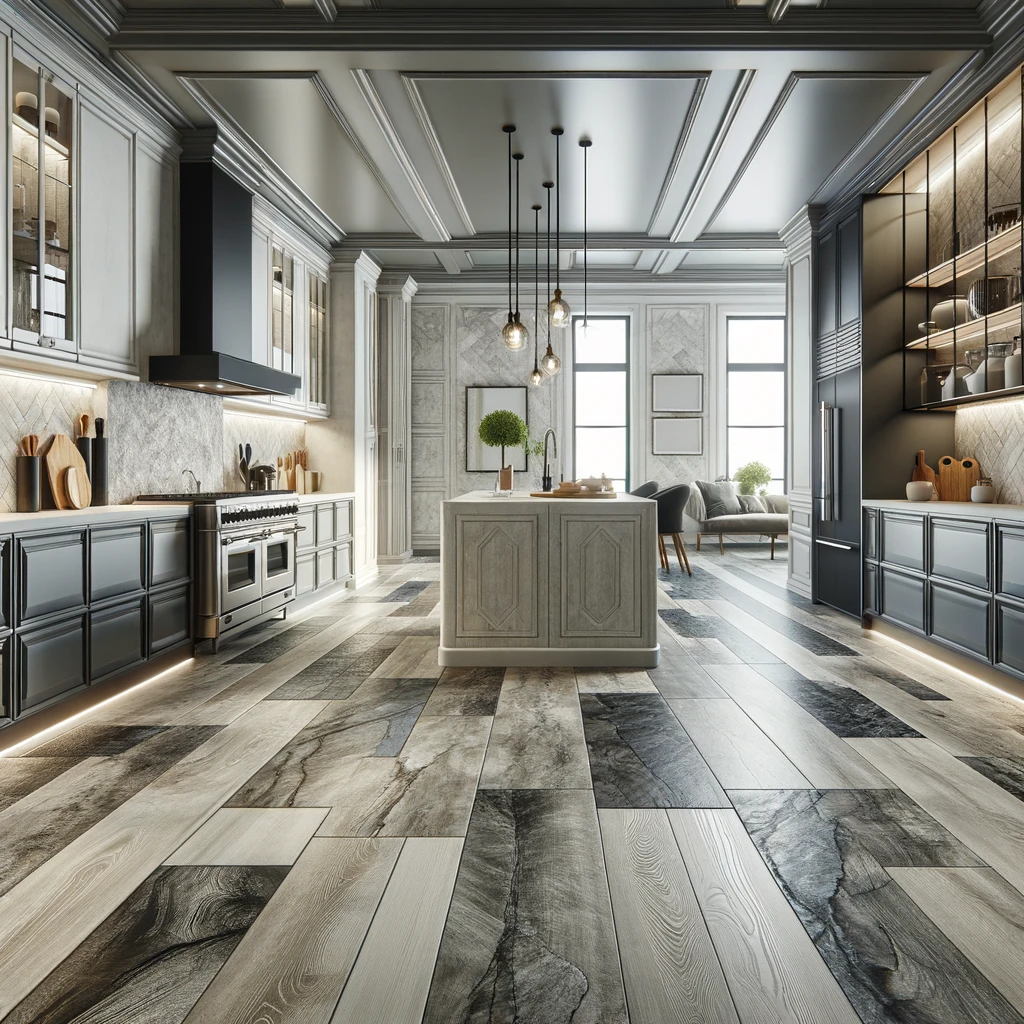
Stone Flooring
Natural stone flooring adds unmatched elegance and longevity to a kitchen. Granite, marble, and slate are popular choices, each with its unique color and pattern. Stone floors are incredibly durable but require regular sealing to maintain their resistance to stains and scratches.
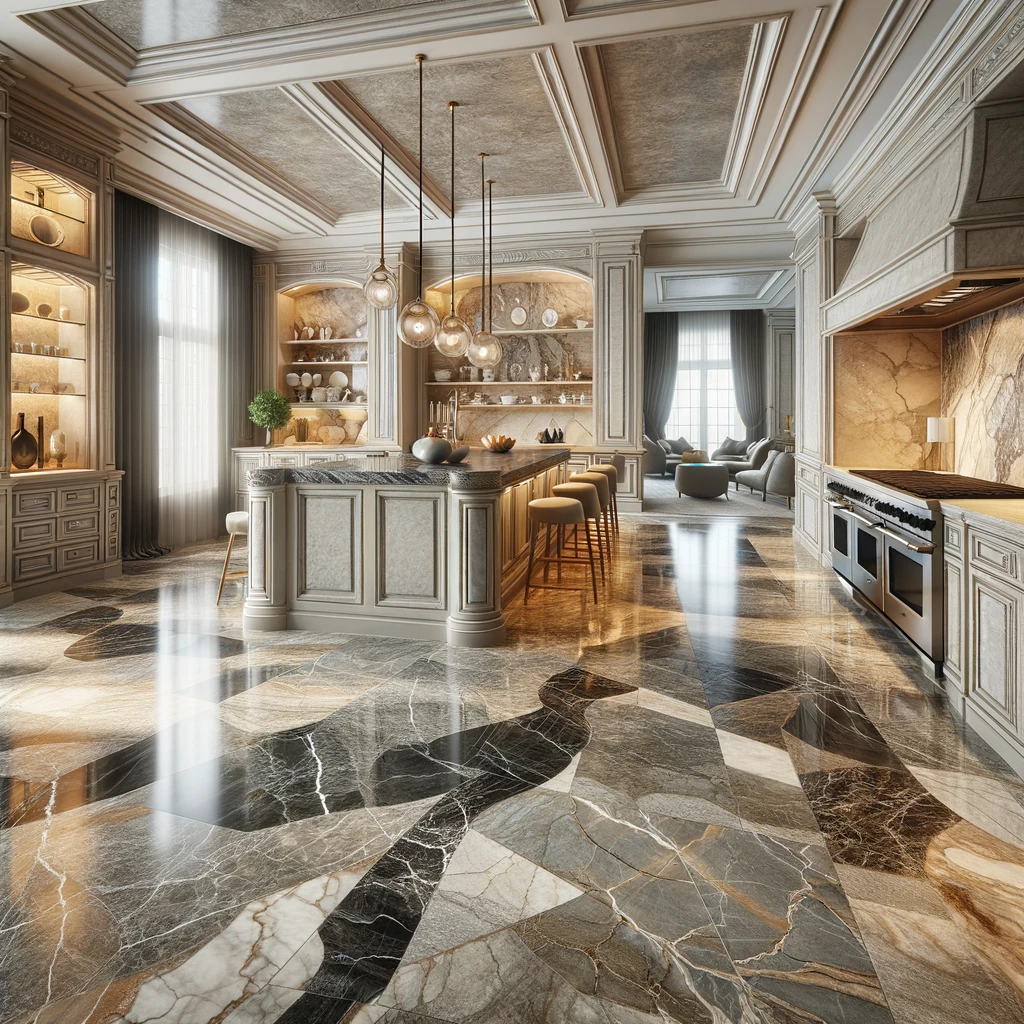
Cork Flooring
Cork flooring is a sustainable, eco-friendly option that adds warmth and comfort to your kitchen. It’s naturally antimicrobial and provides excellent insulation and sound absorption. While cork is resilient and comfortable underfoot, it requires sealing to protect against moisture and stains.
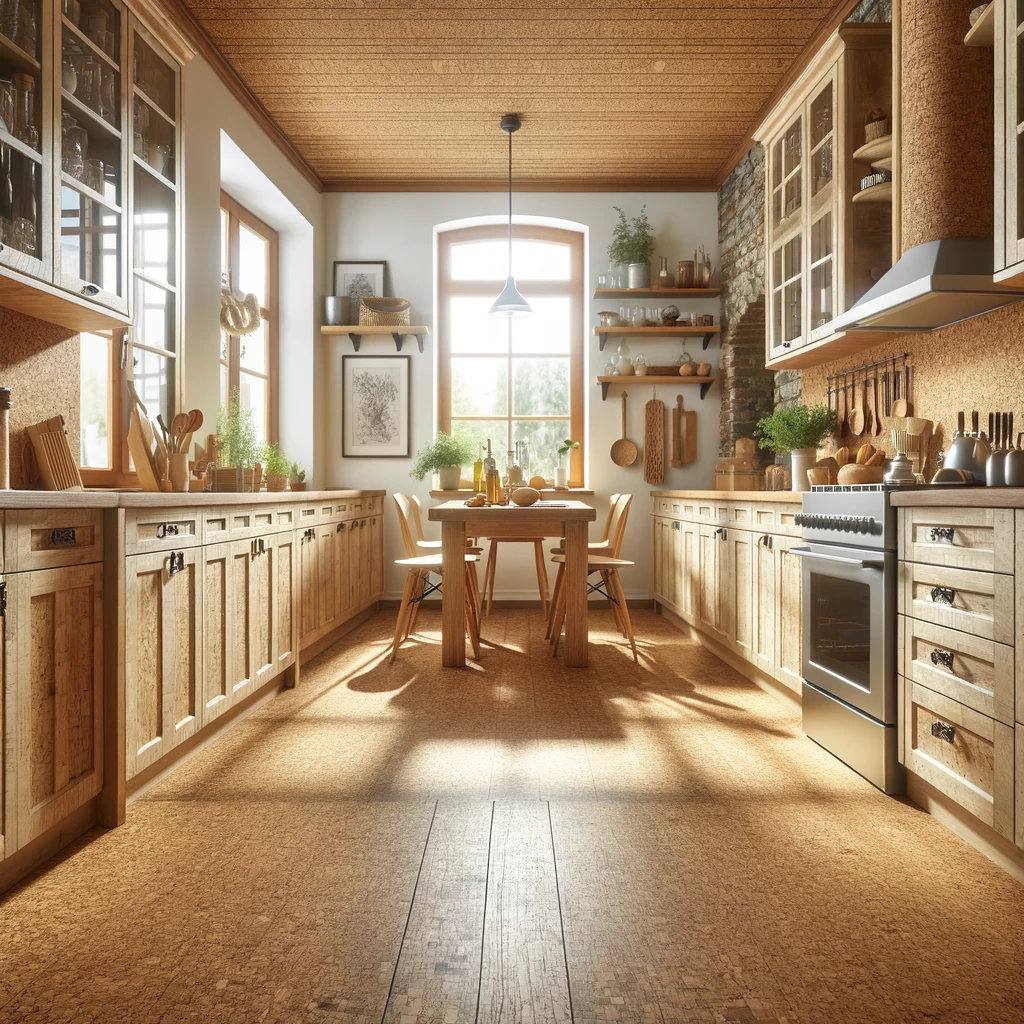
Comparative Analysis
Choosing between these options involves weighing factors like durability, ease of maintenance, and aesthetic preferences. Hardwood and stone offer timeless beauty but require more care, while vinyl and laminate provide practical, low-maintenance solutions without compromising style.
Case Studies
At Archi-Builders, we’ve transformed numerous kitchens by selecting flooring that meets our clients’ lifestyle and design preferences. Whether it’s a durable tile for a busy family kitchen or a luxurious hardwood floor for an elegant space, our projects showcase the potential of each material.
Choosing the Right Flooring for Your Kitchen
The right flooring choice depends on your kitchen’s use, your style preferences, and your budget. We recommend considering your household’s activity level, your desire for maintenance, and the overall design theme of your home.
Conclusion
Selecting the perfect kitchen flooring is a balance between functionality, style, and maintenance. With our expertise, Archi-Builders is here to help you navigate these choices, ensuring your kitchen is not only beautiful but also perfectly suited to your everyday life.
FAQs
Q: Can hardwood flooring withstand kitchen spills?
A: Yes, especially if you choose engineered hardwood and clean up spills promptly.
Q: Is tile cold and hard underfoot?
A: While tile is harder than some materials, using rugs in work areas can add warmth and cushioning.
Q: How long does vinyl flooring last?
A: With proper care, luxury vinyl flooring can last 15-20 years or more.
This guide aims to simplify your decision-making process by offering a comprehensive overview of kitchen flooring options. For more personalized advice or to discuss your renovation project, contact us at Archi-Builders. We’re dedicated to creating spaces that reflect your vision and lifestyle, starting from the ground up.
